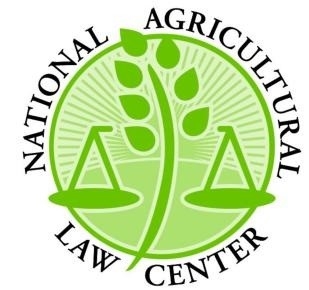FAYETTEVILLE, Ark. – The National Agricultural Law Center, the National Association of Attorneys General and the Arkansas Attorney General's Office are co-hosting a first-of-its-kind national agriculture technology conference later this summer, providing attorneys, agricultural professionals and students interested in a career in agricultural law with unique educational and networking opportunities.
The conference — Advancing American Agriculture: Ag Technology & The Law — will be Aug. 15-16 in Little Rock at the Statehouse Convention Center.
American agriculture is incorporating and advancing through emerging technologies, such as big data, gene editing of plants and animals, new crop protection products, global theft of ag technology, ag tech and ag sustainability, blockchain in agriculture and many others. Technology presents private and public sector opportunities and challenges, and raises numerous legal and policy questions.
The conference features industry and legal experts from across the country who will address these issues for public and private sector attorneys, industry members, students and other professionals with interests in legal and policy issues associated with agricultural technology.
"The future of ag tech is a huge growth area, and the need for understanding legal and policy issues in this arena is at an all-time high and expanding," says Harrison Pittman, director of the National Agricultural Law Center. "We've got attendees registered from several states already, including law students who see this area as a point of interest for career-building."
Speakers and presenters include Leslie Rutledge, Arkansas Attorney General; Professor Drew Kershen, Earl Sneed Centennial Professor of Law; Todd Martin, CEO, Independent Professional Seed Association; Karen Carr, Partner, Arent & Fox; Todd Janzen, Janzen Ag Law; John Dombrosky, AgTech Accelerator; Curtis Hill, Indiana Attorney General; Doug Peterson, Nebraska Attorney General; Jennie Nichols, Special Agent, Federal Bureau of Investigation; and several others.
The full schedule and lineup of speakers is here.
Costs for continuing education credit is $175, attendees not seeking professional credit $125 and students $25. The conference is approved for 12 hours of general continuing legal education credit, including two hours of ethics/professional education credit in Arkansas.
For more information, contact Pittman at hmpittm@uark.edu.
About the Dale Bumpers College of Agricultural, Food and Life Sciences: Bumpers College provides life-changing opportunities to position and prepare graduates who will be leaders in the businesses associated with foods, family, the environment, agriculture, sustainability and human quality of life; and who will be first-choice candidates of employers looking for leaders, innovators, policy makers and entrepreneurs. The college is named for Dale Bumpers, former Arkansas governor and longtime U.S. senator who made the state prominent in national and international agriculture.
About the University of Arkansas: The University of Arkansas provides an internationally competitive education for undergraduate and graduate students in more than 200 academic programs. The university contributes new knowledge, economic development, basic and applied research, and creative activity while also providing service to academic and professional disciplines. The Carnegie Foundation classifies the University of Arkansas among only 2 percent of universities in America that have the highest level of research activity. U.S. News & World Report ranks the University of Arkansas among its top American public research universities. Founded in 1871, the University of Arkansas comprises 10 colleges and schools and maintains a low student-to-faculty ratio that promotes personal attention and close mentoring.
Topics
Contacts
Robby Edwards, director of communications
Dale Bumpers College of Agricultural, Food and Life Sciences
479-575-4625,
